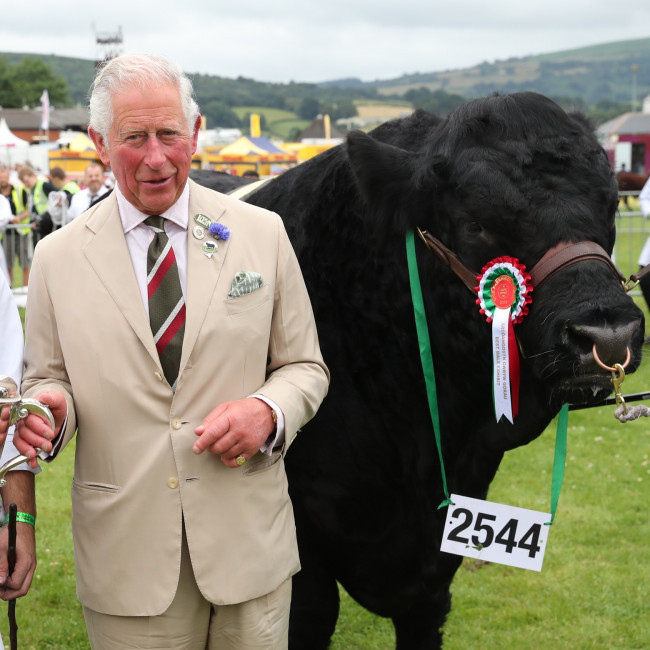The Prince of Wales says “the very future of humanity” may depend on a transition to “more sustainable farming practices”.
The 72-year-old heir to the British throne began the process of converting his mother Queen Elizabeth’s Sandringham estate into a fully organic operation three years ago and now calls for “a farming system that works with nature and not against her” as part of a comprehensive overhaul of the farming industry.
Speaking to Country Life magazine, he said: “It has always seemed to me somewhat logical to embrace a farming system that works with nature and not against her … at a global scale, it is becoming ever clearer to me that the very future of humanity may depend to a large extent on a mainstream transition to more sustainable farming practices.”
And Prince Charles also offered words of warning about the overuse of artificial fertilisers and chemicals which he believes are having a disastrous effect on “animal and human health”.
He said: ‘Since the beginning of the 1980s, when I first had responsibility for managing some land in my own right at Highgrove, I have wanted to focus on an approach to food production that avoids the impact of the predominant, conventional system of industrialised agriculture, which, it is increasingly clear to see, is having a disastrous effect on soil fertility, biodiversity and animal and human health.”
Charles – who is married to Camilla, Duchess of Cornwall – also spoke about bothering his “long-suffering team” at Sandringham with a “near constant flow of ideas” to ensure the estate, where 10 per cent currently runs organically, continues to evolve.
He said: “There is a near constant flow of ideas, which I discuss with the wonderfully knowledgeable — and long-suffering — estate team. This could be innovative sources of organic fertiliser, niche crops, adding value by converting farm produce into products to be sold in the estate shop, targeted habitat restoration for threatened species and carbon sequestration, as well as the new and evolving opportunities around creating a marketplace for biodiversity credits.”
